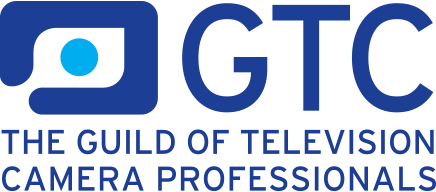Coming Up

-
CVP: Upcoming Courses
7 May 24 @ CVP: Various

-
MPTS 2024
15-16/05/2024 @ Olympia, London

-
KitPlus Show
18 Jun 24 @ SEC, Glasgow

Sponsor News
Rory Peck Trust's new guide to digital security
 Images copyright Nader Elgadi & Sophie Baggott
Images copyright Nader Elgadi & Sophie Baggott
It has never been more important for freelance journalists to practise good digital security – to protect themselves, their material and their sources. But it doesn’t have to be difficult. Even enacting small, simple changes can make a huge difference to a journalist’s safety in the digital space. Rory Peck Trust’s new Digital Security Guide is here to help find a way through the maze.
Ask most freelance journalists what they mean by digital security and they will usually talk about encryption. But that’s not the whole picture. Good digital security is about taking back control of information, devices and materials. Put simply, it comes down to knowing what personal information is 'out there' and then knowing what can be done to help remove, shape or protect it.
“We’ve discovered that many freelance journalists aren’t practising good digital security because they don’t really understand what it is,” says RPT’s Digital Safety Consultant, Ela Stapley. “So we decided to go back to basics and put together this new guide which offers clear, easy steps to help freelancers change their everyday practices and adopt new habits.
“This guide shows freelancers how they can make changes to the way they think about information security and their online presence, one step at a time. For example one month, they could review their social media privacy settings, the next month they might look at the way they communicate with sources and so on. You don’t need to do it all at once, but you do need to do it!”
Common issues
Ela says freelancers are also vulnerable because of a lack of understanding about what risks can lurk in the digital space:
“Often freelancers make errors simply because they haven’t thought about the digital security implications. They may not know that they need to increase their security or they are unsure what to do.”
For instance, serious risks can occur when personal data is available online, whether that’s a home address, photos or details of family members. This information can be used to build up a picture of a journalist’s personal life and can leave a freelancer and their family vulnerable to both a digital and/or physical attack, so it's vital to know how to protect an online profile.
that’s a home address, photos or details of family members. This information can be used to build up a picture of a journalist’s personal life and can leave a freelancer and their family vulnerable to both a digital and/or physical attack, so it's vital to know how to protect an online profile.
A poor knowledge of passwords and how to manage them is also putting freelancers at risk, making accounts vulnerable to hacking. Knowing how to make strong, long passphrases, and using two-step verification for email and social media accounts, are simple actions that will enhance online security.
Next steps
The road to improving digital security needn’t be long or complex. It's easy to start incorporating quick and simple habits into a daily routine with the help of this guide. It's divided into 11 stand-alone chapters, each one covering a specific area, such as social media, passwords, mobile phones and malware. There’s also a chapter on encryption – for when the time is right to embrace that challenge!
“Freelancers might not need to think about encryption straight away", Ela explains. “The first priority should be social media and passwords – do a tidy up, a review and lock down your private data.”
Don't delay, take a look at the new guide now and get started today!
To keep up to date with news and views on digital security and other resources from the Rory Peck Trust, follow them on Twitter, Facebook and Instagram.
Where to next?
Coming Up

-
CVP: Upcoming Courses
7 May 24 @ CVP: Various

-
MPTS 2024
15-16/05/2024 @ Olympia, London

-
KitPlus Show
18 Jun 24 @ SEC, Glasgow

Sponsor News
GTC on Facebook
.jpg)















